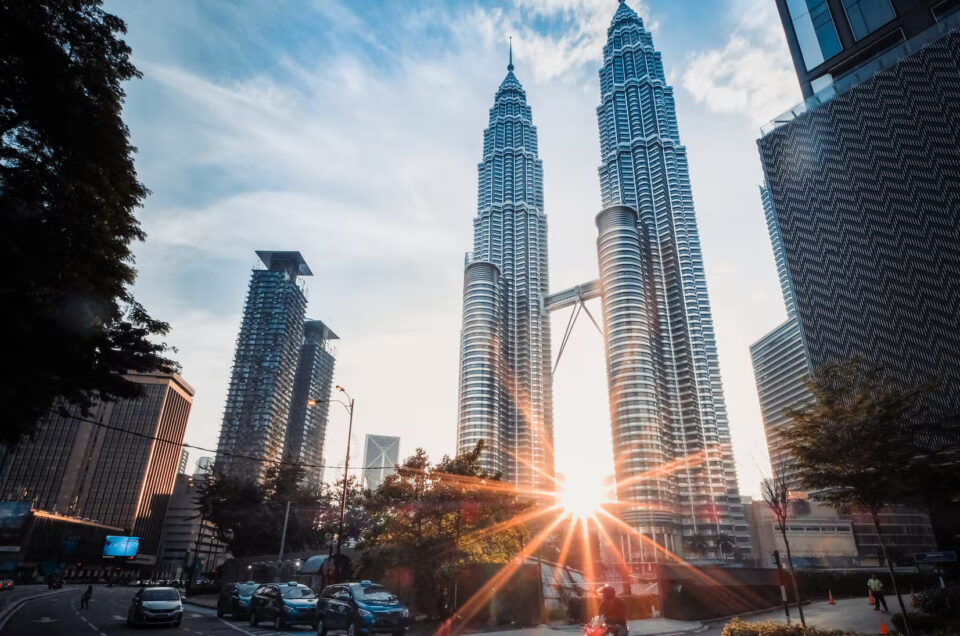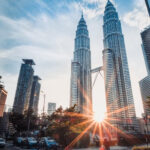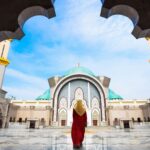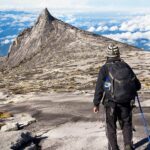With a wide-reaching bus system and fast trains whizzing across the country from the capital, Kuala Lumpur, it’s easy to explore Malaysia without ever stepping inside a car. But exploring with your own wheels opens up a whole world of unexplored small towns, former colonial hamlets, misty mountains, forgotten lakes and viridian rainforests.
Most Malaysian roads are well maintained and perfectly paved – even in the remoter corners of the country – so exploring the country with a hire car is a real no-brainer. The majority of travelers can fly in, rent a car with a home license for 90 days, making for easy road trips across this country of beaches, jungles and historic cities.
To get you on the road, here are the eight best road trips in Malaysia.
The great West Coast crawl
Best scenic drive
Kuala Lumpur–Penang; 249 miles (400km); allow 6 days
Skip the busy E1 highway north of Kuala Lumpur and trace the less-traveled west coast on Route 5 via a string of often missed towns such as riverside Kuala Selangor (home to the historic Bukit Malawati fort) and rural Sekinchan. Pass through endless paddy fields and veer inland to Teluk Intan via Sabak to marvel at the Menara Condong, Asia’s own version of the Leaning Tower of Pisa. Route 5 snakes back to the coast via Sitiawan and Lumut, where frequent ferries leave to Pulau Pangkor, home to flocks of hornbills, boat-making workshops and peaceful jungle-backed coves.
Continuing north, Route 60 stays glued to the sea, skirting Segari’s turtle conservation center and the beaches of Pantai Remis, a hub for Sino-Malay food. Up next is the unmissable lake town of Taiping, voted the third most sustainable city in the world in 2019, from where it’s a 15-minutes detour to mangrove boat rides and fresh seafood in Kuala Sepetang.
Take a left turn along the A190 at the Simpang Empat Semanggol turnoff and time travel back to colonial Malaya in the fishing town of Kuala Kurau. Branch off to nearby Kuala Gula, home to Malaysia’s biggest bird sanctuary and the Hua Seng Keng temple, a life-sized depiction of the ghoulish layers of Buddhist Hell.
Make one last stop in Parit Buntar to buy a bag of much-loved Guan Hiang biscuits (and take an evening firefly cruise in nearby Nibong Tebal, if time allows). To finish up, cross to Penang island by whizzing over the 15 mile (24km) Second Bridge to the southern beaches of Permatang Damar Laut, facing the island’s most scenic bay. Traipse up to historic George Town to finish off with a spectacular street food dinner.
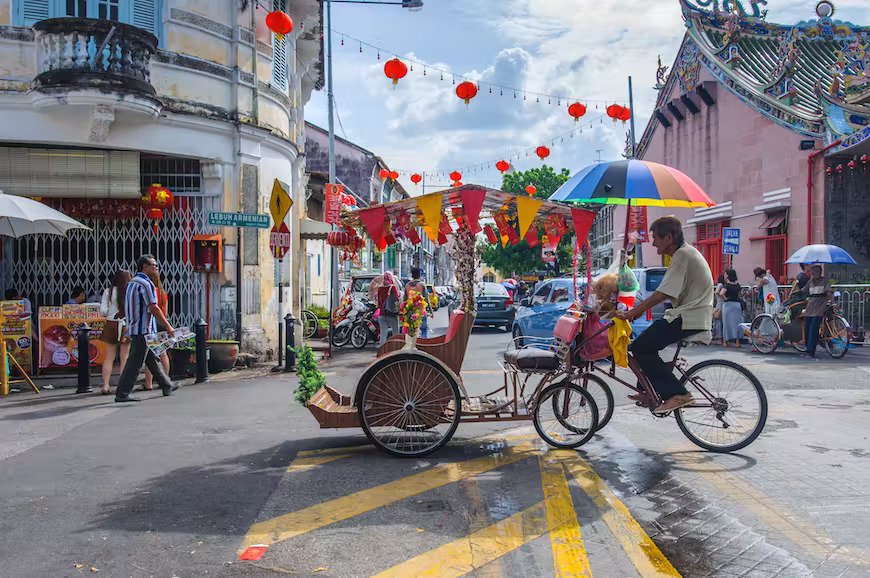
East Coast road trip
Best for beaches and islands
Kota Bahru–Kuantan or Pekan; 230 miles (370km); allow 4 days
This classic coastal ride packs a punch, with splendid turquoise-ringed islands, minaret-studded river estuaries and cultural surprises along the fringes of Peninsular Malaysia’s most devoutly Islamic states. Before you leave Kota Bharu, Kelantan’s conservative capital, cruise 12.5 miles (20km) north to check out the group of curious Sino-Thai temples dotting the countryside around Tumpat, gateway to Thailand’s troubled southern province of Narathiwat. Wat Mai Suwan Kiri (Dragon Boat Temple) is particularly striking.
Start by the journey south by following the coast. A string of wide, empty beaches rolls all the way to Kuala Terengganu and Marang, and some of Malaysia’s most gorgeous islands – Pulau Perhentian, Pulau Redang and Pulau Kapas – are just a short boat ride away. The easiest island for a day trip is Pulau Perhentian, served by regular fast boats from Kuala Besut.
Route 3 hugs the shoreline as it plunges south past forgotten coves (stop to admire the imposing twin boulders at the mouth of Kemasik Beach) to reach the surf playground of Cherating. As you roll into Kuantan, the pace of life gets a tad faster; a sunset stroll at lively Pantai Teluk Cempedak and dinner at its busy food court are must-dos. To extend the trip, head 25 miles (40km) south to Pekan, with its unique collection of aristocratic Malay architecture.
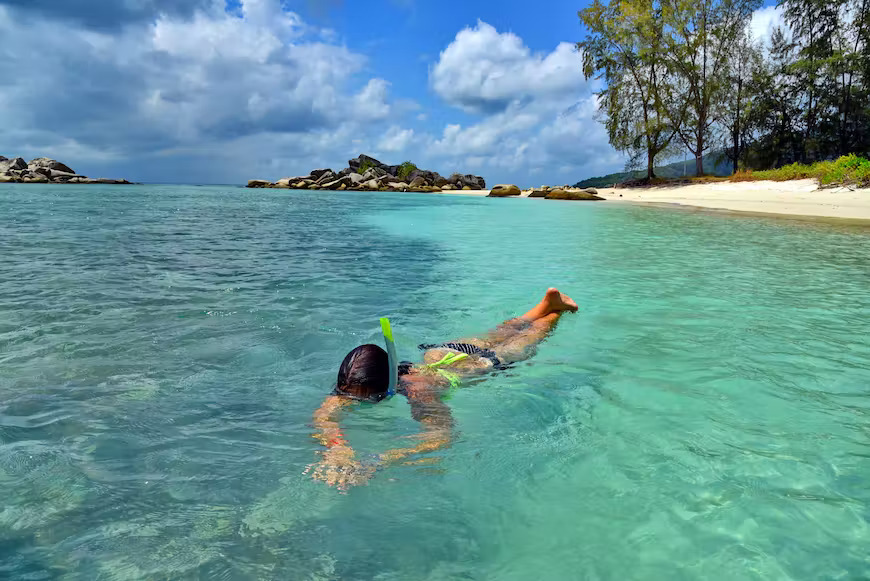
The jungle drive
Best for families
Penang–Kuala Lumpur; 434 miles (700km); allow 10 days
Start in Penang and see how quickly Malaysia’s urban surge gives way to the drowsy rhythms of the remote settlements dotted around the country’s mountainous and jungly interior. Beginning in George Town’s incensed-wafted colonial center, drive across Kedah state to Lenggong, perhaps Malaysia’s least-known Unesco World Heritage Site. Hollowed out by a meteorite impact, this little-explored valley boasts a cluster of prehistoric sites and caves dating back 1.83 million years.
Continue to Tasik Temenggor, a man-made lake offering charming houseboat stays and easy access to Royal Belum State Park, one of the last remaining habitats for the critically endangered Malayan tiger. Route 4 keeps climbing across the 6890ft (2100m) Titiwangsa Range before plunging via Jeli to Dabong, where Gunung Stong State Forest Park and the deep limestone cave complex of Gua Ikan make for perfect pit-stops.
Swing by Gua Musang to reach blissful Pulai, a remote Chinese Hakka community that was only reached by a tarmac road in 1978. Its sloshing river is backed by rows of limestone karst pinnacles reminiscent of China’s Guilin.
Before you reach sleepy Jerantut, the main gateway to the jungle wonders of Taman Negara, there’s more caving and hiking at Merapoh and a chance to encounter the leftovers of British colonial rule in Kuala Lipis, once an important stop for Malaysia’s discontinued Jungle Railway. Spend at least a day hiking in Taman Negara (or exploring by boat), and then drive towards the capital, stopping for a taste of spiky durian at Temerloh or jumbo-sized encounters at Kuala Gandah’s elephant sanctuary.
The final ascent over cloud-enshrouded peaks on the Karak Highway is best broken either at the casinos and theme parks of the Genting Highlands, or with a glamping stay in the quaint riverside village of Janda Baik. Wrap up with a well-deserved dose of shopping and modernity at Kuala Lumpur’s Suria KLCC mall, and pay your respects to the 140ft (43m) golden statue of Lord Murugan fronting the 272 rainbow-colored steps that lead to the Hindu shrines of the Batu Caves.
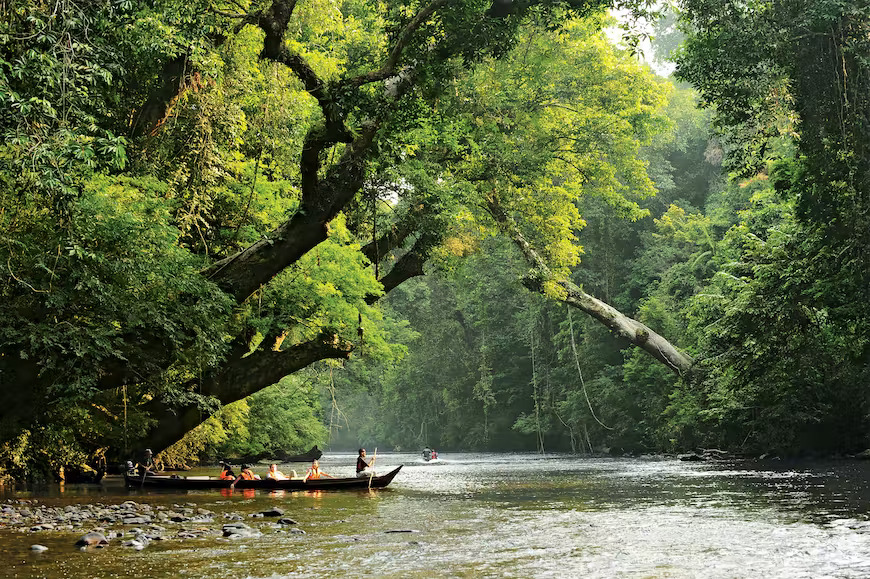
Southern Malaysian crawl
Best for food and culture
Kuala Lumpur–Johor Bahru; 318 miles (512km); allow 5 days
Leave the bustle of the capital behind to experience sand, culture and nature on both sides of the peninsula. Start by driving down the southwestern coast, taking in the beach resort of Port Dickson and the former Dutch colonial outpost (and fusion food hub) of Melaka, now a Unesco World Heritage Site.
Before cutting across the peninsula to Mersing – the main ferry port for wild and lovely Pulau Tioman – try a smorgasbord of Chinese and Malay food in Muar, the diminutive royal city of Johor state, and take a pit stop in offbeat Kluang to hike to the scenic summit of Gunung Lambak.
With a couple of extra days, consider the short detour north to Bekok and the waterfalls and villages of Endau-Rompin National Park, home to many communities of Orang Asli – literally, “first peoples.” Driving south from Mersing, the southeastern coast curves to reach the swanky beach resorts of Desaru, famed for a sandbar that becomes a ‘sky mirror’ at low tide. It’s just a short drive to sprawling Johor Bahru, Malaysia’s southernmost city, which rises just across the strait from futuristic Singapore.
Sarawak explorer
Best for wildlife and indigenous culture
Kuching–Miri; 466 miles (750km); allow 6 days
Experience amazing wildlife, indigenous Dayak culture and lush coastal scenery by driving a considerable section of the Pan Borneo Highway. Before you leave Kuching, pay a visit to Semenggoh Wildlife Centre for encounters with rescued orangutans (come for feeding time at 9am and 3pm daily), then drive inland past low, forested hills and ramshackle roadside settlements to Salcra junction. A short detour to Lubuk Hantu leads to Batang Ai National Park, an artificial lake teeming with wildlife and ringed by Iban longhouses.
Grab some juicy pineapples as you pass through quaint Sarikei before reaching the riverport of Sibu, where delicious Teochew cuisine pairs well with trips to 18th-century longhouses in nearby Bawang Assan. Join the coast at Mukah, the main settlement of the seafaring Melanau people, and consider an overnight stop at the superb Lamin Dana, a boutique cultural lodge preserving local heritage in Kampung Tellian.
The quiet glare of the South China Sea will shimmer on your windshield until you reach oil-rich Bintulu, where Pantai Tanjung Batu is a good spot to tuck your toes into the sand. Head northeast of the city to Similajau National Park for jungle hikes before hitting the road again towards Miri.
The staggering limestone caves of Niah National Park are a must-stop along the way; inhabited for nearly 40 millennia, they contain some of Southeast Asia’s oldest human bones. After a day trip to Lambir Hills National Park south of Miri, end this epic drive at sunset on Canada Hill – the site of the city’s first oil well – and enjoy views over the city’s sprawling coastline.
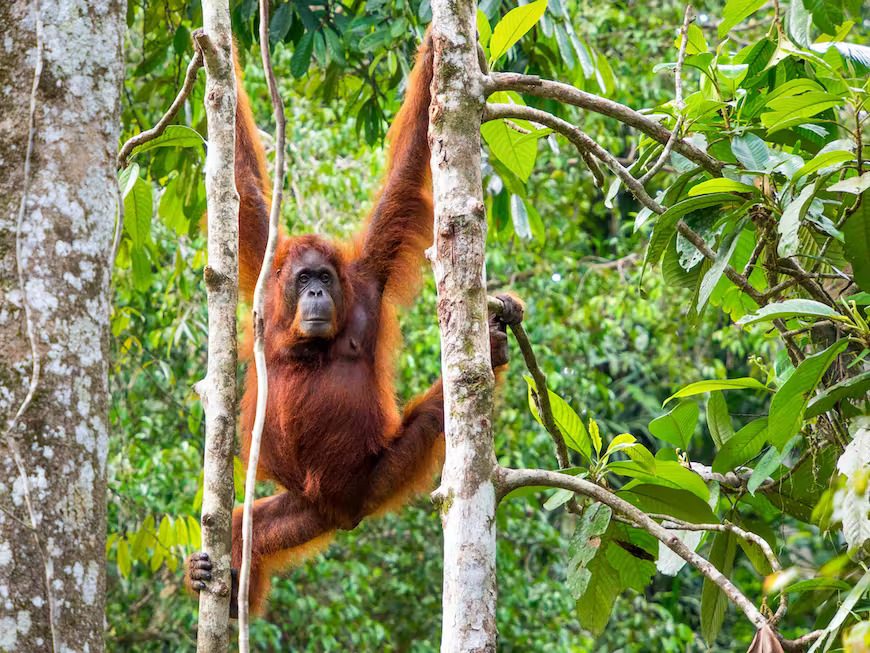
Kelabit Highland’s Logging Track
Best extreme road trip
Miri–Bario; 155 miles (250km); 10–14 hours
Almost everyone takes the thrilling Twin Otter flight from Miri to reach Bario, principal township of the fascinating Kelabit Highlands, an indigenous heartland straddling the border between Sarawak and Indonesian Kalimantan. However, a few hardy adventurers access the highlands by driving 4×4 vehicles along the rough and muddy logging track that winds from Miri into upper Sarawak’s wild interior.
Snaking through endless palm oil plantations – a sad reminder of Malaysia’s problematic logging issues – this drive will rattle your bones at every turn for 12 long hours before you finally rumble into the very Catholic village of Bario, where lingering longhouses are a reminder of waning tribal lifestyles.
Classic Sabah crossing
Best coast-to-coast road trip
Kota Kinabalu–Sandakan; 200 miles (325km); allow 5 days
Take your leave of Kota Kinabalu’s night markets and outlying islands and head west towards 13,435ft (4095m) Mt Kinabalu, Malaysia’s highest peak. Almost everyone makes the two-day, one-night trek to the summit, but you can also check the pulse of Sabah’s indigenous art scene at the Living Arts Center in charming riverside Tamparuli, and meet the woodcut artists of the Pangrok Sulap collective in Ranau before bunking down in alpine-like Kundasang.
Leaving the mountains behind, cut through the heart of Sabah, skirting small towns and ever-present palm oil plantations to the Sukau junction, where a worthy detour on the Kinabatangan River promises thrilling wildlife spotting by boat and atmospheric riverside accommodation. Roll on to Sepilok, with its world-renown orangutan and sun bear sanctuaries. A few more miles will take you to slow-paced, multicultural Sandakan and its bay filled with WWII history and fresh seafood.
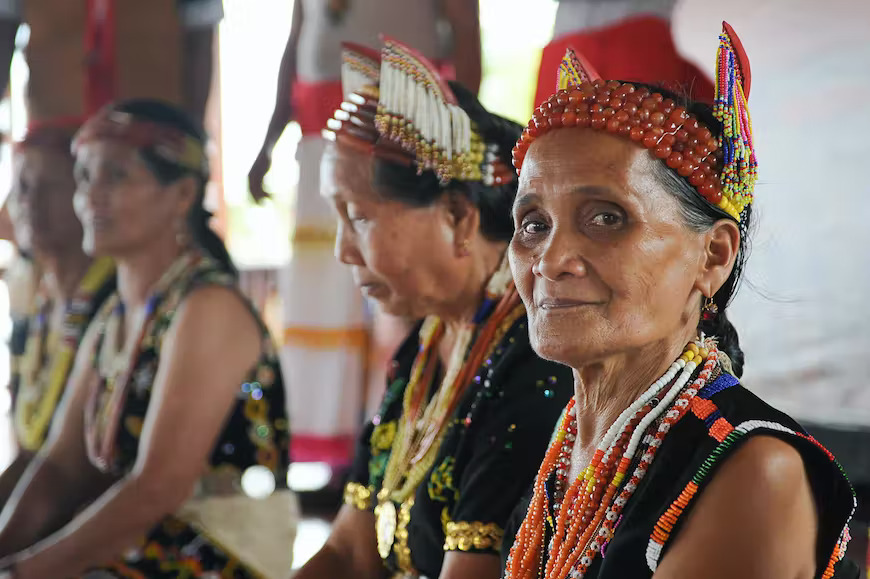
Sabah by the backdoor
Best offbeat road trip
Lahad Datu–Kota Kinabalu; 350 miles (564km); allow 7 days
To encounter some of Borneo’s most impressive rainforests, marine life and indigenous culture, take off from the coastal town Lahad Datu, beginning in either the Danum Valley Conservation Area or the Tabin Wildlife Reserve. Drive across the palm-strewn coast to the ugly duckling town of Semporna, the jump-off point for paradise islands such as Mabul, Kapalai and protected Sipadan, one of the world’s best dive sites.
Back on land, try Tawau’s deserted beaches and follow nature trails at Tawau Hills Park before setting out for a lonesome drive across Sabah’s hilly interior to Orou Sapulot, an important hub for the Murut people, and the town of Keningau at the bottom of the flower-studded Crocker Range. End at Kota Kinabalu’s busy seafront and glitzy shopping malls, after one more stop in Tambunan, access point for 8668ft (2642m) Mount Trusmadi, Sabah’s second-highest peak.
Tips for driving in Malaysia
Malaysia drives on the left, like the UK, and citizens of the 54 countries in the Commonwealth can rent a car using their home driving licenses for up to 90 days (other nationals will also need to carry an International Driving Permit).
To access any toll road in Malaysia, including the bridges leading to Penang island, you’ll need to pay with a rechargeable Touch’n’Go card that is only issued to Malaysians. Ask your rental company for one if you plan on driving any stretch of the North-South Expressway (Route E1) or the Karak Highway connecting Kuala Lumpur to Kuantan. Most other roads are well paved and toll-free.
The countryside is relatively quiet, but when driving in cities, be prepared for drivers flouting traffic rules, especially in Penang, whose erratic traffic is hard for even Malaysians coming from other states to cope with. Kuala Lumpur’s traffic system is also bewildering for first-timers. On weekdays, traffic jams are the norm in most Malaysian cities; Saturdays are usually quieter than Sundays.

